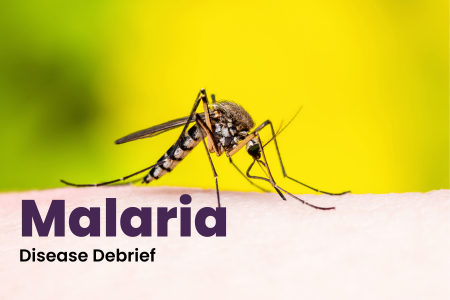The story is a relatable patient journey through the eyes of a caregiver, with suggestions on what patients can do to self- advocate and partner with healthcare providers to slow the emergence and control the spread of AMR.
Stream: NCCID
mod4PH Research Highlights Podcast: Is scientific evidence enough? Using expert opinion to fill gaps in data in antimicrobial resistance research
In this episode, we spoke with Dr Melanie Cousins from the Public Health Agency of Canada about some of her PhD work, which was recently published in an article titled “Is scientific evidence enough? Using expert opinion to fill gaps in data in antimicrobial resistance research”.
From Inside to Outside – Transitioning out of Correctional Facilities in BC
This webinar will explore evidence for treatment continuity for people who are incarcerated in British Columbia (BC) Provincial Correctional Centres.
Advancing Public Health Surveillance’s Role in Tackling Health Inequalities
This seminar will discuss the importance of health inequalities and how, by closely monitoring and documenting them, public health surveillance provides the foundation for informed decision-making and targeted interventions.
Guidelines for the Economic Evaluation of Vaccination Programs in Canada
This webinar will provide an overview of the new Guidelines for the Economic Evaluation of Vaccination Programs in Canada produced by the National Advisory Committee on Immunizations (NACI).
Interpreting & Communicating the signal from Wastewater-based Surveillance
The Centers for Disease Control and Prevention, National Wastewater Surveillance Team Lead, will highlight the current landscape of wastewater-based surveillance in the USA, and the lessons that have been learned throughout the SARS-CoV-2 pandemic and beyond.
PHAC Webinar: Seasonal Influenza Immunization 2023-2024
This moderated webinar will discuss the NACI recommendations on seasonal influenza vaccine use for the 2023-2024 season. The webinar will address the role of health care providers in vaccine uptake and will include an overview of the antiviral treatment of influenza. Participants will also have the opportunity to ask questions.
Surveillance Advances Seminar Series
Hosted by the Public Health Agency of Canada (PHAC) – Corporate Data and Surveillance Branch (CDSB) and The National Collaborating Centre for Infectious Diseases (NCCID).
Bridging the Gaps: A Vision for Public Health Surveillance in Canada
This first in a new series, this seminar provides participants with an overview of public health surveillance, including foundational concepts, current gaps, and key opportunities to strengthen public health surveillance systems and the workforce behind them. It introduces a project to establish a vision for the future of public health surveillance in Canada, including how public health stakeholders from coast to coast to coast can contribute to developing this vision.
mod4PH Research Highlights Podcast: NACI Guidelines for economic evaluation of vaccination programs in Canada
This episode will provide an overview of the National Advisory Committee on Immunization (NACI) health economics guidelines for the evaluation of vaccination programs in Canada, and how they can be used to inform best practices and promote standardized and high-quality evidence for public health decision making.
mod4PH Research Highlights Podcast: The Past, Present, and Future of Infectious Disease Modelling for Public Health
In this episode, Dr. Michael Li spoke with us about the past, present, and future of infectious disease modelling, the different roles and responsibilities of a math modeller, and how he envisions math modelling for public health in the future.
Malaria
Malaria is a parasitic infection spread to humans by female Anopheles mosquitoes. The single-celled parasites are in the genus Plasmodium. Typically, four kinds of malarial parasites infect humans, Plasmodium falciparum, P. vivax, P. ovale, and P. malariae. P. Knowlesi, a type of malaria that naturally infects macaques in Southeast Asia, may also infect humans, causing malaria that is transmitted from animal to human.


